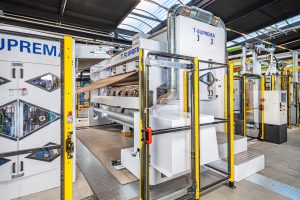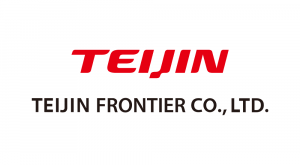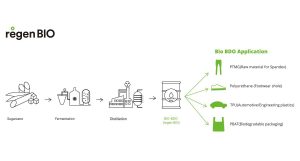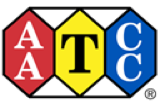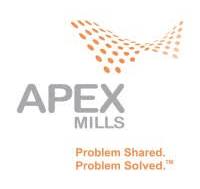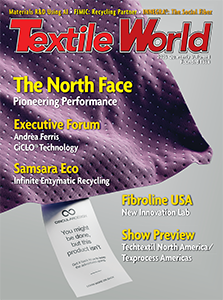 TEMPE, Ariz.— August 1, 2024 — Economic activity in the manufacturing sector contracted in July for the fourth consecutive month and the 20th time in the last 21 months, say the nation’s supply executives in the latest Manufacturing ISM® Report On Business®.
TEMPE, Ariz.— August 1, 2024 — Economic activity in the manufacturing sector contracted in July for the fourth consecutive month and the 20th time in the last 21 months, say the nation’s supply executives in the latest Manufacturing ISM® Report On Business®.
The report was issued today by Timothy R. Fiore, CPSM, C.P.M., Chair of the Institute for Supply Management® (ISM) Manufacturing Business Survey Committee:
“The Manufacturing PMI® registered 46.8 percent in July, down 1.7 percentage points from the 48.5 percent recorded in June. The overall economy continued in expansion for the 51st month after one month of contraction in April 2020. (A Manufacturing PMI® above 42.5 percent, over a period of time, generally indicates an expansion of the overall economy.) The New Orders Index remained in contraction territory, registering 47.4 percent, 1.9 percentage points lower than the 49.3 percent recorded in June. The July reading of the Production Index (45.9 percent) is 2.6 percentage points lower than June’s figure of 48.5 percent. The Prices Index registered 52.9 percent, up 0.8 percentage point compared to the reading of 52.1 percent in June. The Backlog of Orders Index registered 41.7 percent, equaling its June reading. The Employment Index registered 43.4 percent, down 5.9 percentage points from June’s figure of 49.3 percent.
“The Supplier Deliveries Index indicated slowing deliveries, registering 52.6 percent, 2.8 percentage points higher than the 49.8 percent recorded in June. (Supplier Deliveries is the only ISM Report On Business index that is inversed; a reading of above 50 percent indicates slower deliveries, which is typical as the economy improves and customer demand increases.) The Inventories Index registered 44.5 percent, down 0.9 percentage point compared to June’s reading of 45.4 percent.
“The New Export Orders Index reading of 49 percent is 0.2 percentage point higher than the 48.8 percent registered in June. The Imports Index remained in contraction territory in July, registering 48.6 percent, 0.1 percentage point higher than the 48.5 percent reported in June.”
Fiore continues, “U.S. manufacturing activity entered deeper into contraction. Demand was weak again, output declined, and inputs stayed generally accommodative. Demand slowing was reflected by the (1) New Orders Index dropping further into contraction, (2) New Export Orders Index continuing in contraction, (3) Backlog of Orders Index remaining in strong contraction territory, and (4) Customers’ Inventories Index moving lower to the higher end of ‘too low’. Output (measured by the Production and Employment indexes) declined compared to June, with a combined 8.5-percentage point downward impact on the Manufacturing PMI calculation. Panelists’ companies reduced production levels month over month as head-count reductions continued in July. Inputs — defined as supplier deliveries, inventories, prices and imports — generally continued to accommodate future demand growth.
“Demand remains subdued, as companies show an unwillingness to invest in capital and inventory due to current federal monetary policy and other conditions. Production execution was down compared to June, likely adding to revenue declines, putting additional pressure on profitability. Suppliers continue to have capacity, with lead times improving and shortages not as severe. Eighty-six percent of manufacturing gross domestic product (GDP) contracted in July, up from 62 percent in June. More concerning: The share of sector GDP registering a composite PMI calculation at or below 45 percent (a good barometer of overall manufacturing weakness) was 53 percent in July, 39 percentage points higher than the 14 percent reported in June. Notably, all six of the largest manufacturing industries — Machinery; Transportation Equipment; Fabricated Metal Products; Food, Beverage & Tobacco Products; Chemical Products; and Computer & Electronic Products — contracted in July,” Fiore said.
The five manufacturing industries reporting growth in July are: Printing & Related Support Activities; Petroleum & Coal Products; Miscellaneous Manufacturing; Furniture & Related Products; and Nonmetallic Mineral Products. The 11 industries reporting contraction in July — in the following order — are: Primary Metals; Plastics & Rubber Products; Machinery; Electrical Equipment, Appliances & Components; Transportation Equipment; Fabricated Metal Products; Food, Beverage & Tobacco Products; Wood Products; Paper Products; Chemical Products; and Computer & Electronic Products.
What Respondents Are Saying
“Business is relatively flat — the same volume, but smaller orders.” [Chemical Products]
“Demand continued to soften into the second half of the year. Supply chain pipelines and inventories remain full, reducing the need for overtime. Geopolitical issues between China and Taiwan as well as the election in November remain weighing concerns.” [Transportation Equipment]
“Even though we are used to a seasonal reduction in business over the summer, consumer behavior is changing more than normal. Sales are lighter, and customer orders are coming in under forecasts. It seems consumers are starting to pull back on spending.” [Food, Beverage & Tobacco Products]
“Availability of parts is good, with small exceptions of missing materials here and there. Ordering is still well below typical levels as we continue to burn down inventory of raw goods, with ‘normal’ ordering trends expected to return sometime in the second half of 2024.” [Computer & Electronic Products]
“It seems that the economy is slowing down significantly. The number of sales calls received from new suppliers is increasing significantly. Our own order backlog is also diminishing. We are hoping for an increase in customer demand, or we will possibly need to make organizational changes.” [Machinery]
“Unfortunately, our business is experiencing the sharpest decline in order levels in a year. We were well below our budget target in June; as a result, it was the first month this year that we had negative net income.” [Fabricated Metal Products]
“Business is slowing, and we are taking cost actions.” [Electrical Equipment, Appliances & Components]
“Some markets that are usually unwavering are showing weakness. Weather is the common factor, but only so much.” [Nonmetallic Mineral Products]
“Our sales forecast for July and August are slow, but we’re making every attempt to remedy that situation. Our medical end-user customers continue to meet their forecasts, which is promising.” [Textile Mills]
“Elevated financing costs have dampened demand for residential investment. This has reduced our need for component products and inventory.” [Wood Products]
MANUFACTURING AT A GLANCE
July 2024 |
| Index |
Series
IndexJul |
Series
IndexJun |
Percentage
Point
Change |
Direction |
Rate of
Change |
Trend*
(Months) |
| Manufacturing PMI® |
46.8 |
48.5 |
-1.7 |
Contracting |
Faster |
4 |
| New Orders |
47.4 |
49.3 |
-1.9 |
Contracting |
Faster |
4 |
| Production |
45.9 |
48.5 |
-2.6 |
Contracting |
Faster |
2 |
| Employment |
43.4 |
49.3 |
-5.9 |
Contracting |
Faster |
2 |
| Supplier Deliveries |
52.6 |
49.8 |
+2.8 |
Slowing |
From Faster |
1 |
| Inventories |
44.5 |
45.4 |
-0.9 |
Contracting |
Faster |
18 |
| Customers’ Inventories |
45.8 |
47.4 |
-1.6 |
Too Low |
Faster |
8 |
| Prices |
52.9 |
52.1 |
+0.8 |
Increasing |
Faster |
7 |
| Backlog of Orders |
41.7 |
41.7 |
0.0 |
Contracting |
Same |
22 |
| New Export Orders |
49.0 |
48.8 |
+0.2 |
Contracting |
Slower |
2 |
| Imports |
48.6 |
48.5 |
+0.1 |
Contracting |
Slower |
2 |
| OVERALL ECONOMY |
Growing |
Slower |
51 |
| Manufacturing Sector |
Contracting |
Faster |
4 |
Manufacturing ISM Report On Business data is seasonally adjusted for the New Orders, Production, Employment and Inventories indexes.
*Number of months moving in current direction.
Commodities Reported Up/Down In Price And In Short Supply
Commodities Up in Price
Aluminum (8); Aluminum Products (2); Caustic Soda; Copper* (4); Corrugate; Corrugated Boxes; Electrical Components (3); High-Density Polyethylene (HDPE) Resin; Ocean Freight (3); Paper Products; Plastic Based Products; Plastic Resins (7); Polypropylene Resin; and Titanium Dioxide (2).
Commodities Down in Price
Copper*; Crude Oil; Natural Gas; Steel (3); Steel — Carbon (4); Steel — Hot Rolled (3); Steel — Scrap (3); Steel Products (2); and Sulfur.
Commodities in Short Supply
Electrical Components (46); Electrical Equipment; Electronic Components (4); Hydraulic Components; and Semiconductors.
Note: The number of consecutive months the commodity is listed is indicated after each item.
*Indicates both up and down in price.
July 2024 Manufacturing Index Summaries
Manufacturing PMI®
The U.S. manufacturing sector contracted for the fourth consecutive month in July, as the Manufacturing PMI registered 46.8 percent, down 1.7 percentage points compared to June’s reading of 48.5 percent. “After breaking a 16-month streak of contraction by expanding in March, the manufacturing sector has contracted the last four months, and at a faster rate in July. Of the five subindexes that directly factor into the Manufacturing PMI®, only one (Supplier Deliveries) was in expansion territory, up from zero in June. The New Orders Index remained in contraction and moved downward in July. None of the six biggest manufacturing industries registered growth,” says Fiore. A reading above 50 percent indicates that the manufacturing sector is generally expanding; below 50 percent indicates that it is generally contracting.
A Manufacturing PMI above 42.5 percent, over a period of time, generally indicates an expansion of the overall economy. Therefore, the July Manufacturing PMI indicates the overall economy grew for the 51st straight month after last contracting in April 2020. “The past relationship between the Manufacturing PMI and the overall economy indicates that the July reading (46.8 percent) corresponds to a change of plus-1.2 percent in real gross domestic product (GDP) on an annualized basis,” says Fiore.
The Last 12 Months
| Month |
Manufacturing
PMI® |
Month |
Manufacturing
PMI® |
| Jul 2024 |
46.8 |
Jan 2024 |
49.1 |
| Jun 2024 |
48.5 |
Dec 2023 |
47.1 |
| May 2024 |
48.7 |
Nov 2023 |
46.6 |
| Apr 2024 |
49.2 |
Oct 2023 |
46.9 |
| Mar 2024 |
50.3 |
Sep 2023 |
48.6 |
| Feb 2024 |
47.8 |
Aug 2023 |
47.6 |
| Average for 12 months – 48.1
High – 50.3
Low – 46.6 |
New Orders
ISM’s New Orders Index contracted in July for the fourth consecutive month, registering 47.4 percent, a decrease of 1.9 percentage points compared to June’s figure of 49.3 percent. The New Orders Index hasn’t indicated consistent growth since a 24-month streak of expansion ended in May 2022. “Of the six largest manufacturing sectors, two (Computer & Electronic Products; and Chemical Products) reported increased new orders. Panelists’ comments noted a continued level of uncertainty and concern about a lack of new order activity, with confidence in the future economic environment reaching its lowest level since the coronavirus pandemic recovery,” says Fiore. A New Orders Index above 52.3 percent, over time, is generally consistent with an increase in the Census Bureau’s series on manufacturing orders (in constant 2000 dollars).
The six manufacturing industries that reported growth in new orders in July, in order, are: Nonmetallic Mineral Products; Paper Products; Petroleum & Coal Products; Computer & Electronic Products; Furniture & Related Products; and Chemical Products. The eight industries reporting a decline in new orders in July — in the following order — are: Primary Metals; Transportation Equipment; Fabricated Metal Products; Food, Beverage & Tobacco Products; Machinery; Electrical Equipment, Appliances & Components; Plastics & Rubber Products; and Miscellaneous Manufacturing.
| New Orders |
%Higher |
%Same |
%Lower |
Net |
Index |
| Jul 2024 |
19.0 |
53.0 |
28.0 |
-9.0 |
47.4 |
| Jun 2024 |
20.3 |
59.1 |
20.6 |
-0.3 |
49.3 |
| May 2024 |
19.0 |
57.4 |
23.6 |
-4.6 |
45.4 |
| Apr 2024 |
19.9 |
63.2 |
16.9 |
+3.0 |
49.1 |
Production
The Production Index continued in contraction territory in July, registering 45.9 percent, 2.6 percentage points lower than the June reading of 48.5 percent. None of the six largest manufacturing sectors reported increased production. The index recorded its lowest performance since May 2020, when it registered 34.2 percent. “Panelists’ companies significantly reduced output levels compared to June. New order rates remain weak, and backlog levels continue to decline. Companies continue to avoid investing in inventory due to the current economic uncertainty,” says Fiore. An index above 52.2 percent, over time, is generally consistent with an increase in the Federal Reserve Board’s Industrial Production figures.
The four industries reporting growth in production during the month of July are: Printing & Related Support Activities; Furniture & Related Products; Paper Products; and Miscellaneous Manufacturing. The 10 industries reporting a decrease in production in July, in order, are: Petroleum & Coal Products; Machinery; Textile Mills; Primary Metals; Food, Beverage & Tobacco Products; Transportation Equipment; Electrical Equipment, Appliances & Components; Fabricated Metal Products; Plastics & Rubber Products; and Computer & Electronic Products.
| Production |
%Higher |
%Same |
%Lower |
Net |
Index |
| Jul 2024 |
15.2 |
60.1 |
24.7 |
-9.5 |
45.9 |
| Jun 2024 |
22.8 |
56.9 |
20.3 |
+2.5 |
48.5 |
| May 2024 |
19.8 |
62.6 |
17.6 |
+2.2 |
50.2 |
| Apr 2024 |
22.1 |
62.6 |
15.3 |
+6.8 |
51.3 |
Employment
ISM®’s Employment Index registered 43.4 percent in July, 5.9 percentage points lower than the June reading of 49.3 percent. The index recorded its lowest level since a reading of 42 percent in June 2020. “The index contracted for the second consecutive month after an expansion in May, which broke a seven-month streak of contraction. None of the six big manufacturing sectors expanded employment in July. Respondents’ companies are continuing to reduce head counts through layoffs, attrition and hiring freezes. Panelists’ comments in July indicated a notable increase in staff reductions compared to June, supported by the approximately 1-to-1.8 ratio of hiring versus head-count reduction comments,” says Fiore. An Employment Index above 50.3 percent, over time, is generally consistent with an increase in the Bureau of Labor Statistics (BLS) data on manufacturing employment.
Of 18 manufacturing industries, the two industries reporting employment growth in July are: Nonmetallic Mineral Products; and Miscellaneous Manufacturing. The 13 industries reporting a decrease in employment in July, in the following order, are: Textile Mills; Electrical Equipment, Appliances & Components; Paper Products; Petroleum & Coal Products; Plastics & Rubber Products; Wood Products; Primary Metals; Chemical Products; Computer & Electronic Products; Food, Beverage & Tobacco Products; Machinery; Fabricated Metal Products; and Transportation Equipment.
| Employment |
%Higher |
%Same |
%Lower |
Net |
Index |
| Jul 2024 |
9.8 |
68.7 |
21.5 |
-11.7 |
43.4 |
| Jun 2024 |
16.8 |
66.1 |
17.1 |
-0.3 |
49.3 |
| May 2024 |
17.1 |
69.0 |
13.9 |
+3.2 |
51.1 |
| Apr 2024 |
16.3 |
67.9 |
15.8 |
+0.5 |
48.6 |
Supplier Deliveries†
Delivery performance of suppliers to manufacturing organizations was slower in July, with the Supplier Deliveries Index registering 52.6 percent, a 2.8-percentage point gain compared to the reading of 49.8 percent reported in June. This is the first month of slower deliveries after four consecutive months of faster deliveries. After a reading of 52.4 percent in September 2022, the index went into contraction territory the following month and remained there until February. Of the six big industries, three (Transportation Equipment; Chemical Products; and Computer & Electronic Products) reported slower supplier deliveries in July. “Supplier deliveries are slowing as panelists’ companies increasingly rely on their suppliers to manage their purchased material inventory, putting more strain on the supply chain,” says Fiore. A reading below 50 percent indicates faster deliveries, while a reading above 50 percent indicates slower deliveries.
The eight manufacturing industries reporting slower supplier deliveries in July — listed in order — are: Textile Mills; Petroleum & Coal Products; Wood Products; Transportation Equipment; Chemical Products; Electrical Equipment, Appliances & Components; Miscellaneous Manufacturing; and Computer & Electronic Products. The three industries reporting faster supplier deliveries in July are: Paper Products; Fabricated Metal Products; and Machinery. Seven industries reported no change in supplier deliveries in July as compared to June.
| Supplier Deliveries |
%Slower |
%Same |
%Faster |
Net |
Index |
| Jul 2024 |
11.7 |
81.7 |
6.6 |
+5.1 |
52.6 |
| Jun 2024 |
8.8 |
82.0 |
9.2 |
-0.4 |
49.8 |
| May 2024 |
6.2 |
85.3 |
8.5 |
-2.3 |
48.9 |
| Apr 2024 |
8.1 |
81.6 |
10.3 |
-2.2 |
48.9 |
Inventories
The Inventories Index registered 44.5 percent in July, down 0.9 percentage point compared to the reading of 45.4 percent reported in June. “Manufacturing inventories contracted at a faster rate compared to the previous month. None of the six big industries reported increased manufacturing inventories in July. Continuing demand uncertainty is causing panelists’ companies to reduce investment in inventory and remain reliant on suppliers to carry ‘on-demand’ inventory,” says Fiore. An Inventories Index greater than 44.4 percent, over time, is generally consistent with expansion in the Bureau of Economic Analysis (BEA) figures on overall manufacturing inventories (in chained 2000 dollars).
Of 18 manufacturing industries, two reported higher inventories in July: Petroleum & Coal Products; and Electrical Equipment, Appliances & Components. The 11 industries reporting lower inventories in July — in the following order — are: Wood Products; Nonmetallic Mineral Products; Plastics & Rubber Products; Primary Metals; Paper Products; Furniture & Related Products; Computer & Electronic Products; Chemical Products; Transportation Equipment; Machinery; and Miscellaneous Manufacturing.
| Inventories |
%Higher |
%Same |
%Lower |
Net |
Index |
| Jul 2024 |
12.2 |
63.3 |
24.5 |
-12.3 |
44.5 |
| Jun 2024 |
11.3 |
67.9 |
20.8 |
-9.5 |
45.4 |
| May 2024 |
14.4 |
66.4 |
19.2 |
-4.8 |
47.9 |
| Apr 2024 |
13.1 |
67.7 |
19.2 |
-6.1 |
48.2 |
Customers’ Inventories†
ISM®’s Customers’ Inventories Index registered 45.8 percent in July, down 1.6 percentage points compared to the 47.4 percent reported in June. “Customers’ inventory levels decreased at a faster rate in July, with the index moving downward to the upper end of ‘too low’ territory. Panelists report their companies’ customers have decreased amounts of their products in inventory compared to the previous month, which is considered a positive for future new orders and production,” says Fiore.
The eight industries reporting customers’ inventories as too high in July, in order, are: Textile Mills; Furniture & Related Products; Wood Products; Plastics & Rubber Products; Fabricated Metal Products; Electrical Equipment, Appliances & Components; Miscellaneous Manufacturing; and Chemical Products. The six industries reporting customers’ inventories as too low in July, in order, are: Computer & Electronic Products; Paper Products; Primary Metals; Food, Beverage & Tobacco Products; Transportation Equipment; and Machinery.
Customers’
Inventories |
%
Reporting |
%Too
High |
%About
Right |
%Too
Low |
Net |
Index |
| Jul 2024 |
79 |
13.5 |
64.5 |
22.0 |
-8.5 |
45.8 |
| Jun 2024 |
78 |
13.6 |
67.5 |
18.9 |
-5.3 |
47.4 |
| May 2024 |
75 |
14.8 |
66.9 |
18.3 |
-3.5 |
48.3 |
| Apr 2024 |
76 |
15.6 |
64.3 |
20.1 |
-4.5 |
47.8 |
Prices†
The ISM® Prices Index registered 52.9 percent, 0.8 percentage point higher compared to the June reading of 52.1 percent, indicating raw materials prices increased in July for the seventh month after eight consecutive months of decreases. Of the six largest manufacturing industries, three — Chemical Products; Computer & Electronic Products; and Food, Beverage & Tobacco Products — reported price increases in July. “The Prices Index indicated expansion in July, at a faster rate compared to the previous month. Commodity prices continue to be volatile, especially oil, natural gas, aluminum and plastic resins. Steel prices have reached long-term historical lows, supported by declining scrap prices. Twenty-three percent of companies reported higher prices in July, compared to 20 percent in June,” says Fiore. A Prices Index above 52.8 percent, over time, is generally consistent with an increase in the Bureau of Labor Statistics (BLS) Producer Price Index for Intermediate Materials.
In July, the 10 industries that reported paying increased prices for raw materials, in order, are: Textile Mills; Plastics & Rubber Products; Printing & Related Support Activities; Miscellaneous Manufacturing; Wood Products; Chemical Products; Furniture & Related Products; Computer & Electronic Products; Electrical Equipment, Appliances & Components; and Food, Beverage & Tobacco Products. The four industries reporting paying decreased prices for raw materials in July are: Fabricated Metal Products; Paper Products; Machinery; and Transportation Equipment.
| Prices |
%Higher |
%Same |
%Lower |
Net |
Index |
| Jul 2024 |
22.6 |
60.5 |
16.9 |
+5.7 |
52.9 |
| Jun 2024 |
20.2 |
63.8 |
16.0 |
+4.2 |
52.1 |
| May 2024 |
25.5 |
63.0 |
11.5 |
+14.0 |
57.0 |
| Apr 2024 |
30.8 |
60.1 |
9.1 |
+21.7 |
60.9 |
Backlog of Orders†
ISM®’s Backlog of Orders Index registered 41.7 percent, the same reading as in June, indicating order backlogs contracted for the 22nd consecutive month after a 27-month period of expansion. For the second consecutive month, the index recorded its lowest reading since November 2023, when it registered 39.3 percent. None of the six largest manufacturing industries reported expanded order backlogs in July. “The index remained in contraction in July, as new order rates were insufficient to allow backlogs to grow. After 22 months of backlog contraction, it is believed that order books are now at historically low levels,” says Fiore.
Of the 18 manufacturing industries, the only one that reported growth in order backlogs in July is Petroleum & Coal Products. The 13 industries reporting lower backlogs in July — in the following order — are: Wood Products; Nonmetallic Mineral Products; Primary Metals; Plastics & Rubber Products; Food, Beverage & Tobacco Products; Textile Mills; Electrical Equipment, Appliances & Components; Machinery; Furniture & Related Products; Transportation Equipment; Fabricated Metal Products; Miscellaneous Manufacturing; and Chemical Products.
Backlog of
Orders |
%
Reporting |
%Higher |
%Same |
%Lower |
Net |
Index |
| Jul 2024 |
91 |
12.9 |
57.5 |
29.6 |
-16.7 |
41.7 |
| Jun 2024 |
90 |
10.7 |
61.9 |
27.4 |
-16.7 |
41.7 |
| May 2024 |
91 |
12.3 |
60.1 |
27.6 |
-15.3 |
42.4 |
| Apr 2024 |
90 |
12.2 |
66.4 |
21.4 |
-9.2 |
45.4 |
New Export Orders†
ISM®’s New Export Orders Index registered 49 percent in July, up 0.2 percentage point from June’s reading of 48.8 percent. “The New Export Orders Index reading indicates that export orders contracted for a second month after expanding in May and contracting in April, with two straight months of expansion before that. As was experienced in June, new export orders remain sluggish as international trading partners continue to struggle with weak economies,” says Fiore.
The four industries reporting growth in new export orders in July are: Paper Products; Primary Metals; Food, Beverage & Tobacco Products; and Miscellaneous Manufacturing. The six industries reporting a decrease in new export orders in July — in the following order — are: Computer & Electronic Products; Machinery; Electrical Equipment, Appliances & Components; Fabricated Metal Products; Transportation Equipment; and Chemical Products. Seven industries reported no change in new export orders in July as compared to June.
New Export
Orders |
%
Reporting |
%Higher |
%Same |
%Lower |
Net |
Index |
| Jul 2024 |
74 |
8.9 |
80.2 |
10.9 |
-2.0 |
49.0 |
| Jun 2024 |
73 |
10.3 |
76.9 |
12.8 |
-2.5 |
48.8 |
| May 2024 |
72 |
10.0 |
81.1 |
8.9 |
+1.1 |
50.6 |
| Apr 2024 |
74 |
9.7 |
78.0 |
12.3 |
-2.6 |
48.7 |
Imports†
ISM®’s Imports Index cooled again in July with a reading of 48.6 percent, an increase of 0.1 percentage point compared to June’s figure of 48.5 percent. “Imports contracted for the second month in a row after five consecutive months of expansion preceded by 14 consecutive months of contraction. Since the beginning of April, respondents’ companies have limited their investments in inventory, as growth prospects remain cloudy. Ocean freight costs continue to rise and access to equipment remains challenged as a result of extended transit times, reducing container and ship availability,” says Fiore.
The four industries reporting an increase in import volumes in July are: Petroleum & Coal Products; Primary Metals; Chemical Products; and Food, Beverage & Tobacco Products. The nine industries that reported lower volumes of imports in July, in order, are: Nonmetallic Mineral Products; Wood Products; Electrical Equipment, Appliances & Components; Miscellaneous Manufacturing; Plastics & Rubber Products; Transportation Equipment; Fabricated Metal Products; Machinery; and Computer & Electronic Products.
| Imports |
%
Reporting |
%Higher |
%Same |
%Lower |
Net |
Index |
| Jul 2024 |
84 |
9.8 |
77.5 |
12.7 |
-2.9 |
48.6 |
| Jun 2024 |
83 |
8.7 |
79.6 |
11.7 |
-3.0 |
48.5 |
| May 2024 |
85 |
14.8 |
72.6 |
12.6 |
+2.2 |
51.1 |
| Apr 2024 |
85 |
11.6 |
80.6 |
7.8 |
+3.8 |
51.9 |
†The Supplier Deliveries, Customers’ Inventories, Prices, Backlog of Orders, New Export Orders, and Imports indexes do not meet the accepted criteria for seasonal adjustments.
Buying Policy
The average commitment lead time for Capital Expenditures in July was 177 days, a decrease of two days compared to June. Average lead time in July for Production Materials was 77 days, a decrease of three days compared to June. Average lead time for Maintenance, Repair and Operating (MRO) Supplies was 46 days, an increase of three days compared to June.
| Percent Reporting |
Capital
Expenditures |
Hand-to-
Mouth |
30 Days |
60 Days |
90 Days |
6 Months |
1 Year+ |
Average
Days |
| Jul 2024 |
16 |
3 |
7 |
14 |
32 |
28 |
177 |
| Jun 2024 |
14 |
3 |
11 |
14 |
28 |
30 |
179 |
| May 2024 |
15 |
3 |
9 |
15 |
32 |
26 |
172 |
| Apr 2024 |
17 |
4 |
8 |
13 |
32 |
26 |
170 |
| Percent Reporting |
|
Production
Materials |
Hand-to-
Mouth |
30 Days |
60 Days |
90 Days |
6 Months |
1 Year+ |
Average
Days |
|
| Jul 2024 |
7 |
29 |
25 |
27 |
8 |
4 |
77 |
|
| Jun 2024 |
8 |
24 |
27 |
28 |
9 |
4 |
80 |
|
| May 2024 |
6 |
26 |
31 |
23 |
10 |
4 |
80 |
|
| Apr 2024 |
7 |
23 |
29 |
30 |
7 |
4 |
79 |
|
| Percent Reporting |
| MRO Supplies |
Hand-to-
Mouth |
30 Days |
60 Days |
90 Days |
6 Months |
1 Year+ |
Average
Days |
| Jul 2024 |
28 |
35 |
19 |
13 |
4 |
1 |
46 |
| Jun 2024 |
29 |
36 |
16 |
14 |
5 |
0 |
43 |
| May 2024 |
29 |
38 |
15 |
13 |
4 |
1 |
44 |
| Apr 2024 |
29 |
37 |
17 |
12 |
4 |
1 |
44 |
Posted: August 1, 2024
Source: Institute for Supply Management® (ISM®)
 MÖNCHENGLADBACH, Germany — August 6, 2024 — September 11-14, 2024, the Trützschler Group will present its latest innovations at CAITME in Tashkent, Uzbekistan — featuring machines and technologies in spinning, card clothing and nonwovens. Visit booth J30 in pavilion 3 to learn all about Trützschler’s global flagship in carding — the intelligent card TC 30i — as well as the integrated draw frame IDF 3 and the world’s first 12-head comber, the TCO 21XL.
MÖNCHENGLADBACH, Germany — August 6, 2024 — September 11-14, 2024, the Trützschler Group will present its latest innovations at CAITME in Tashkent, Uzbekistan — featuring machines and technologies in spinning, card clothing and nonwovens. Visit booth J30 in pavilion 3 to learn all about Trützschler’s global flagship in carding — the intelligent card TC 30i — as well as the integrated draw frame IDF 3 and the world’s first 12-head comber, the TCO 21XL.